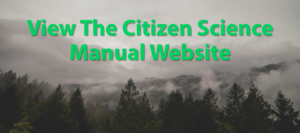The Issue:
Citizen science is a term used to refer to involvement by non-professionals at any stage of the scientific process. Community-based environmental citizen science is a process in which community members take the lead on monitoring environmental conditions or detecting environmental violations near their homes. As the federal government and some states step back from environmental enforcement—and as new technologies facilitate the gathering, analysis, and sharing of environmental data—there is both a greater need and a greater opportunity for environmental citizen science.
The Clinic’s Work:
The Clinic is in the midst of a multi-year, multi-pronged effort to promote and facilitate community-based environmental citizen science. In the fall of 2017, the Clinic hosted a workshop that brought together federal, state, and local agency staff, representatives from environmental, environmental justice, and citizen science organizations, and technology developers to discuss legal and policy issues for environmental citizen science. The workshop included presentations by current and former clinic students.
Clinic staff and students—with input from the Environmental Law Institute and Environmental Defense Fund—have developed an interactive, electronic Manual for Citizen Scientists Starting or Participating in Data Collection and Environmental Monitoring Projects, which has also been adapted into a website: https://citizenscienceguide.com/homepage. This interactive tool helps individuals and organizations identify, design, and implement citizen science projects. The Manual is supported by a fifty-state survey of laws relevant to the activities of citizen scientists that includes regulatory and evidentiary standards applicable to uses of environmental data.
The Clinic has also produced supplements to the Manual on Public Rights to Information About Chemical Storage and Releases and Using Citizen Science Data in Litigation.
Clinic staff and students also presented the Clinic’s work at the 2017 Great Lakes Restoration conference in Buffalo, New York; the Citizen Science Association 2019 Conference in Raleigh, North Carolina; and the 2019 National Environmental Justice Conference and Training Program in Washington, DC.
Acting Director Shaun Goho participated in two webinar panels in 2019: 1) “Collecting and Reporting Evidence of Environmental Law Violations: Tools that Work for Citizens” (June 2019), which focused on a critical component of environmental law enforcement: educating and empowering citizens in the U.S. and abroad; and 2) “Introducing the Citizen Science Association (CSA) Law and Policy Working Group and its new Legal Question Submission Tool” (September 2019), which announced the creation of a tool through which the citizen scientist community can submit questions about relevant laws and policies raised by citizen science projects.
The Clinic has volunteered to make its Clinic students available to periodically answer legal and policy questions submitted by citizen scientists. In 2019-2020, the Clinic provided responses to citizen scientists’ legal and policy questions submitted through the Citizen Science Association (CSA) Law & Policy Working Group’s “Ask a Legal Question” tool. All of the Clinic’s answers to date are available here.
In addition, in May 2021, Acting Director Shaun Goho and Senior Clinical Instructor Aladdine Joroff presented on how citizen scientists can submit written comments to influence agency policy and permitting decisions in a workshop during the CSA biannual meeting, “CitSciVirtual 2021.”


